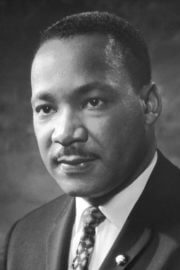Tribute to Phillip E. Johnson
By Dr. Richard D. Land
A true spiritual giant and genuine hero of the Christian faith has gone home to be with the Lord. Dr. Phillip E. Johnson, professor, author, scholar, and gentleman and one of the key founders of the Intelligent Design movement passed away a few days ago at the age of 79. Johnson was an adult convert to the Christian faith, becoming a Christian at 38 while a faculty member at the University of California at Berkeley. A Harvard graduate and a product of the University of Chicago School of Law, Johnson’s keen mind led him to reject Darwinism and ultimately led him to become one of the most important founders of the Intelligent Design movement.
Southern Evangelical Seminary has long had a special connection with Dr. Johnson. He greatly admired our co-founder, Dr. Norman Geisler. He also donated to SES many of the books he used when researching his important and groundbreaking book Darwin on Trial, and they are now housed in the Phillip E. Johnson collection here in Charlotte. SES recognized Dr. Johnson’s invaluable contributions by naming our Chair of Science and Culture in his honor. I was personally greatly honored to be the recipient of the Phillip E. Johnson Award for Liberty and Truth from Biola University in 2010, the three previous recipients being Johnson himself, Anthony Flew, and Ben Stein.
All Christians owe a great debt to Dr. Johnson for the incisive and effective, yet kindly and courtly, way that he confronted and defeated the “Darwinian Dragon.” Applying his keen intellect and analytical legal mind to evolution issues, Johnson wrote Darwin on Trial, which has sold more than 250,000 copies and has been translated into numerous foreign languages. This volume, a devastating critique of the Darwinian theory of evolutionary origins made Johnson what one commentator called the “Godfather of Intelligent Design.” The mega-debate that ensued over Darwinian evolution led Johnson to become the founder and popularizer of the “wedge movement,” seeking to create a hearing for the supernatural in the public’s understanding of science. Johnson’s goal was to convince people that Darwinism is inherently atheistic, thus changing the debate from evolution vs. creationism to atheism vs. the existence of God.
In 2003 World Magazine honored Phillip Johnson with its “Daniel of the Year” award, describing him as a “courtly combatant.”
Southern Evangelical Seminary is truly grateful for Phillip Johnson’s ministry among us as well as to the world at large. We will miss him as a treasured mentor, colleague, encourager, and friend. However, his influence and example remain alive among us, and we will embrace his memory and seek to perpetuate his ministry in the days ahead.
The Defense Rests: Remembering Phillip E. Johnson
By Dr. J.T. Bridges
I was saddened by the news of the recent death of Phillip Johnson. Apparently, the Evangelical world is destined to lose great thinkers this year (Dr. Norman Geisler passing away in July). When I was in college and seminary, there were two books that enormously influenced my thinking on Neo-Darwinism and the question of macroevolution. One was Mike Behe’s Darwin’s Black Box and the other was Phillip Johnson’s Darwin on Trial.
One might wonder what business a law professor had in challenging one of the most dominant scientific theories of our day. To this Johnson replies, “I approach the creation-evolution dispute not as a scientist but as a professor of law, which means among other things that I know something about the ways that words are used in arguments.” There is a great affinity between the practice of law and the academic discipline of philosophy. Both are interested in how terms are deployed in arguments. I once engaged an astrophysicist on the nature of the human soul and at a certain point he exclaimed, “I’m a scientist, I build things for a living.” My reply was, “I’m a philosopher, I build arguments for a living.” In Darwin on Trial, Johnson built one long argument demanding that our unconscious reception of neo-Darwinian theory and the fact of its dominance required some careful reexamination.
This book, followed by his The Wedge of Truth, set my feet down a path of research that would take me into the world of the philosophy of science to consider how its resources might be brought to bear on the question of natural history and the natural sciences more broadly. His founding of the Discovery Institute provided a conceptual home base for those scientists, philosophers, mathematicians, and theologians who had serious reservations about the received view of the neo-Darwinian narrative. Breaking trail in this direction, Johnson made it okay to challenge the status quo.
I do not need to recall Johnson’s numerous contributions to Christian thinking in this area. What I will cherish about Johnson’s legacy is the fact that he was willing to engage his mind with interesting ideas that did not fall, strictly speaking, within his formal area of training. Following closely upon this is the fact that Johnson was willing to endanger his professional reputation in order to follow the argument where it led and to embrace the truth wherever he discovered it.
Johnson’s labor, like Geisler’s labor, has now come to an end. Those of us who remain should be impacted by their spirit of inquiry, scholarship, love of truth, and desire to engage our culture with the aim of making an impact










